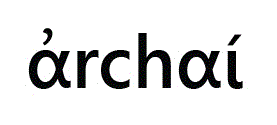Abstract:
While refutation is usually related to Plato's early, Socratic, dialogues, this paper is aimed at exploring the link between refutation and dialectic in some of his middle and late dialogues. First, it argues that refutation assumes a constructive role in the Phaedo, where the best logos is the least refutable, and also in the Republic, where the philosopher is invited to fight his way through all elenchoi. Then, it tries to show that the gymnasia of Prm. 130a ff. is aimed at training young Socrates to come to the aid of the theory he embraces preventing it from being refuted. He should travel and explore all the paths, by assuming a hypothesis as well as the opposite one. This methodology paves the way on which Plato advances in the Sophist, where the antinomic structure of the gymnasia gives way to a “constructive” dialectic in which the aporia is solved and a thesis is established by refutation. The last section of this paper is devoted to analysing Sph. 251c-252e, where the positive and constructive function of the elenchus is especially clear. Plato argues for the symploke eidon by exploring all the hypotheses that are open to the search and refuting those that ultimately represent obstacles to his position. The symploke is the truth which remains when all the hypotheses that contradict it have been refuted. The conclusion is that the elenchus does not disappear but is put at the service of the truth, as an essential part of the method for attaining a positive doctrine.
Keywords:
dialectic; refutation; hypothesis; self-refutation; principles
